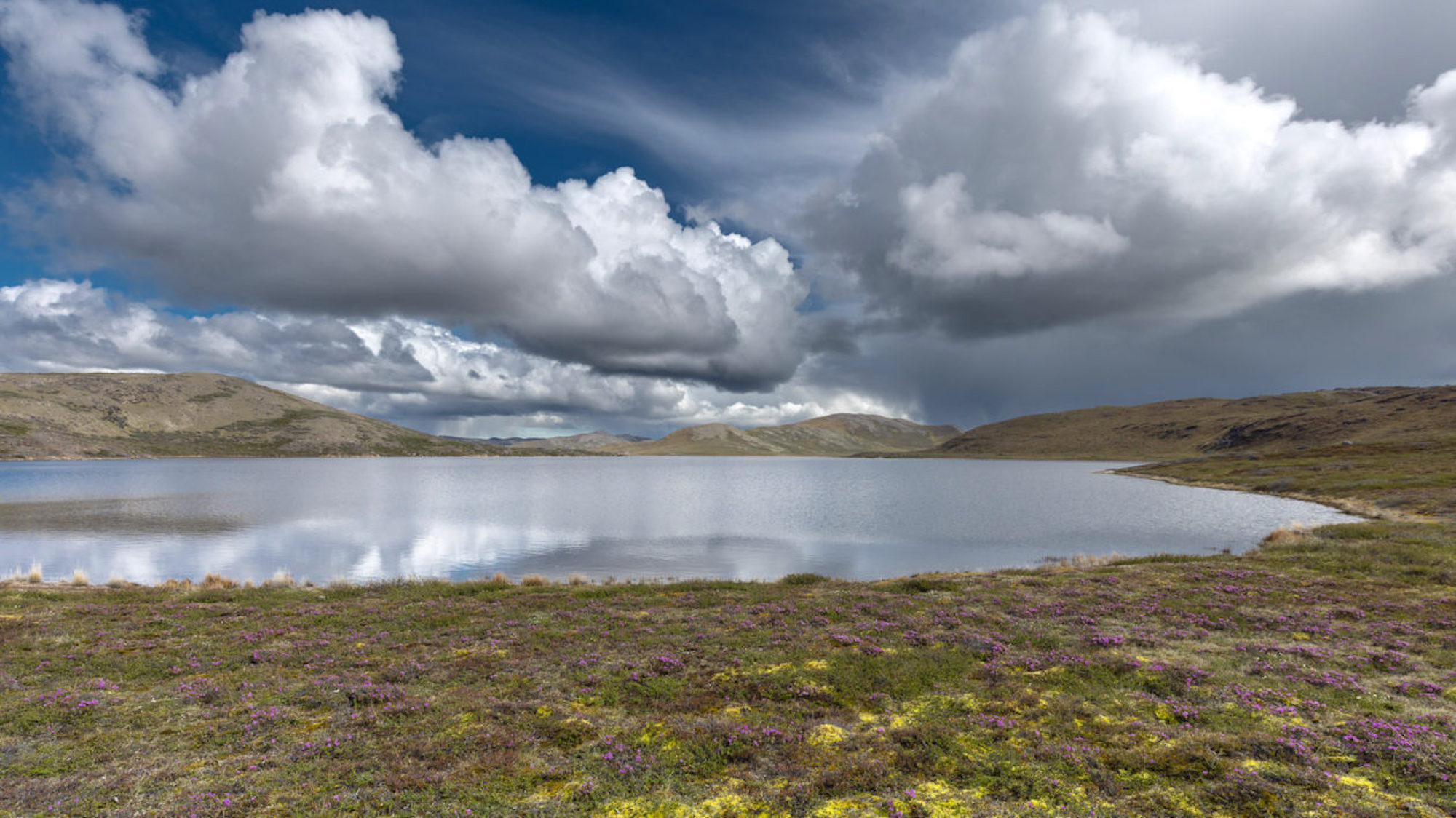Arctic Lakes Are Carbon Banks. What Happens When They Heat Up?
Arctic Lakes Are Carbon Banks. What Happens When They Heat Up?
Scientists are rushing to understand the dangers before it’s too late.
CHERYL KATZ

(
Mother Jones) A family of muskox rumbles along craggy hilltops overlooking the small parade of humans crossing the West Greenland tundra. Ecologist Václava Hazuková, in the lead, sets a brisk pace as we bushwhack through knee-high willow and birch. Leaning forward under an equipment-filled pack nearly half her size, she high-steps over “pillows and mattresses”—hummocks of plants interspersed with troughs of rain-soaked permafrost. The twin blades of a kayak paddle protrude from Hazuková’s pack, pointing to our destination: Lake SS85, a small, clover-shaped lake some two hours away.
Lake SS85 is one of hundreds of lakes dotting this 90-mile-wide fringe of land between the towering Greenland Ice Sheet and the Labrador Sea. For centuries, 85 and its aquatic neighbors have been ice-covered most of the year. But as the climate has warmed, high-latitude lakes—from the northern United States and Canada to Scandinavia and Siberia—have started to thaw, on average, a week earlier and freeze 11 days later than they did a century ago, according to Sapna Sharma, a biologist at York University in Toronto. The rate of ice loss has sextupled over the past 25 years. Northern lake temperatures are rising more than twice as fast as the global lake average, Sharma says. And nowhere is the climate changing faster than in the Arctic.
....(snip)....
One of scientists’ key questions is how rising temperatures, shrinking ice seasons, and the increasing precipitation projected for many parts of the Arctic might affect lakes’ carbon cycles. Put simply, this cycle describes the actions of aquatic microbes that break down organic material—exhaling carbon dioxide and other greenhouse gases—and phytoplankton that take up carbon dioxide to build their skeletons—releasing oxygen. Lakes that breathe out more carbon dioxide than they take in are net carbon sources, while those that on balance remove carbon dioxide from the atmosphere are
sinks.
....(snip)....
“We are trying to understand the carbon budget in the Arctic,” says Hazuková. The stakes are high: That ledger of sinks and sources informs the models that scientists use to project the Earth’s future climate. Currently, however, the estimate “pretty much only focuses on soils and vegetation,” she says. “Freshwaters are just not included at all.” .............(more)
https://www.motherjones.com/environment/2023/09/arctic-lakes-carbon-sequestration-warming-science/
